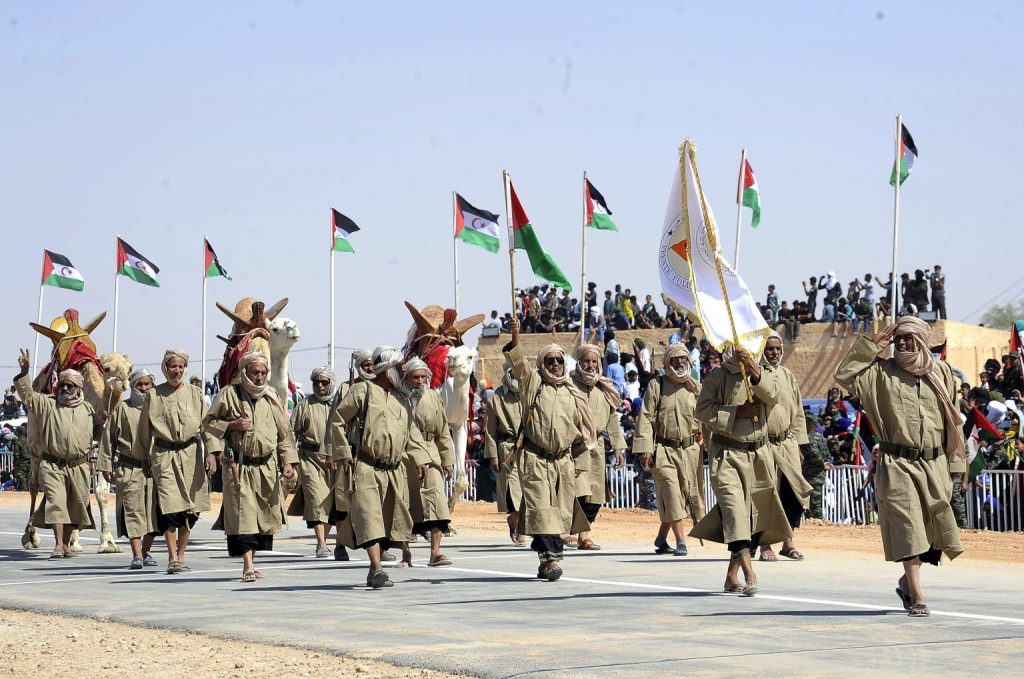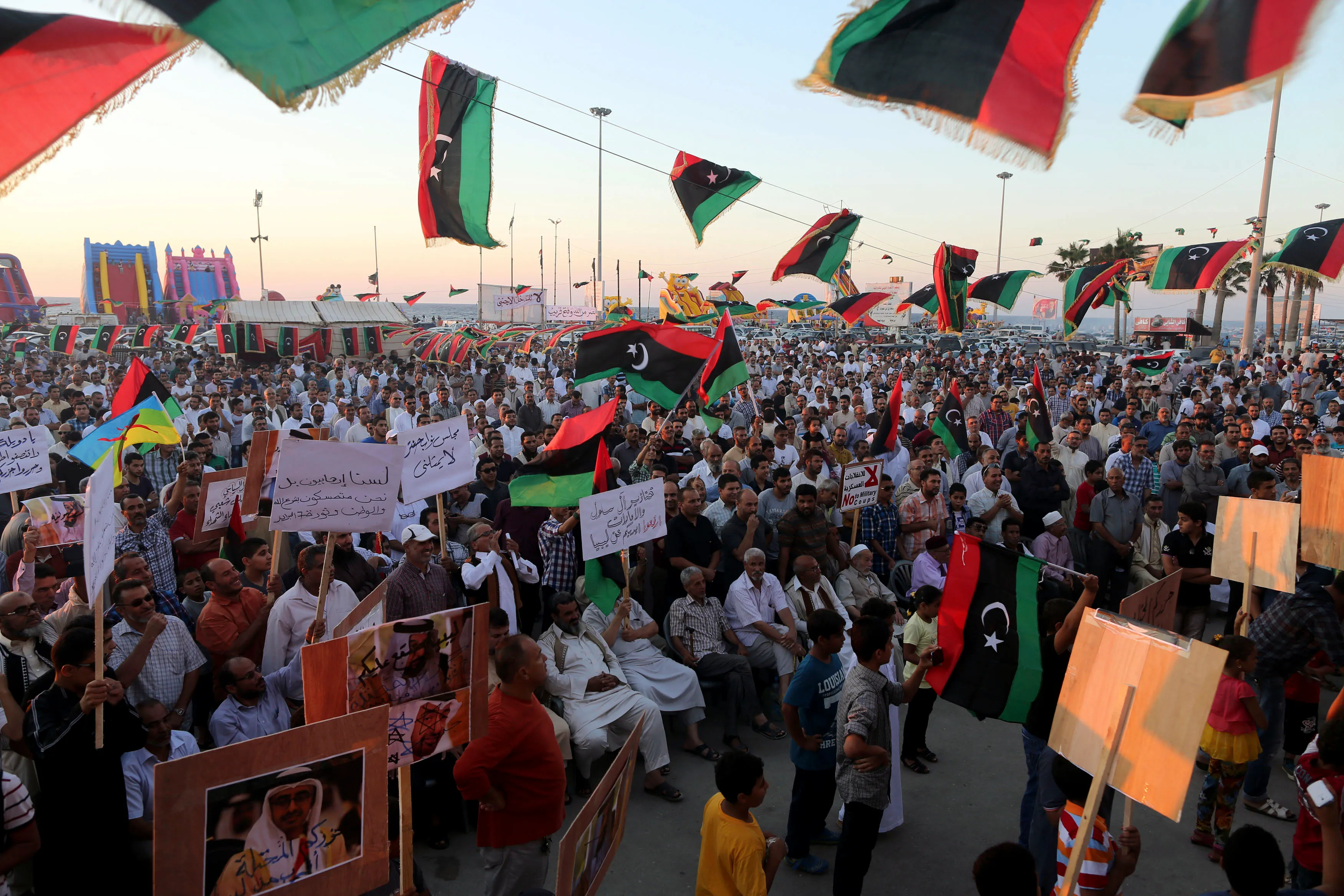Oussama Romdhani: Maghreb suffers at the hands of tariffs and global unrest

In the Maghreb, the recent global trade crisis triggered by US President Donald Trump’s tariff onslaught has further amplified the state of disarray among countries of Arab North Africa.
Since the launch in 1989 of the Arab Maghreb Union, which was supposed to usher in the establishment of a regional common market, most of the five member nations of the grouping have negotiated association agreements with the EU, separately. Now they are dealing with the global tariffs crisis again with divided ranks. Analysts are left to assess the gains and losses with which their governments will have to reckon. While a baseline ten percent tariff was imposed on Morocco and Mauritania, the rest were slapped with higher tariffs: 31 percent for Libya, 30 percent in the case of Algeria and 28 percent for Tunisia.
For now at least, Moroccan trade and manufacturing stands to gain an additional competitive advantage over countries facing higher tariffs. In the meanwhile, Tunisian exports of olive oil, dates and automotive spare parts, and to a lesser extent Algeria’s fledgling non-hydrocarbon exports to the US could be adversely affected. Much less impacted will be Libya and Mauritania, which do not export much to the US.

But with the fall of oil prices and the weakening of the US dollar, Morocco, Tunisia and Mauritania could cut their energy and import bills, while Algeria and Libya would have to adjust their budget projections. The Maghreb countries are likely, however, to suffer indirect , but more serious, fall-outs down the road from a possible recession in Europe, which would drive down the appetite for imports, tourism and investment.
But for the region as a whole, many of the new concerns are only making worse a situation that has been already challenging. Because of the four-decade-old Western Sahara dispute, which has put at odds Algeria and Morocco, the Maghreb is reaching unprecedented levels of political fragmentation. This comes on top of the Maghreb’s dubious distinction as one of the least economically-integrated regions of the world.
Because of endless feuds since its launch in 1989, the “Arab Maghreb Union” has receded into oblivion, both as a political and economic project. Experts have estimated the cost of the “non-Maghreb” at billions of dollars and many percentage points of GDP growth. But nobody is keeping a tally anymore.
“The Maghreb countries, which have been unable to curtail illegal migration, cannot afford to be dragged into conflicts south of the Sahara nor see the armed insurgencies sweep through their borders. That risk is neither a far-fetched scenario nor a contingency against which the hopelessly-fragmented Maghreb could somehow put up a united front.”
Nobody can doubt that US tariffs would have had less of an effect on an economically-integrated Maghreb, one with a functioning common market, no daunting tariff barriers and better coordinated economic and international strategies.
With the land border and airspace between Morocco and Algeria closed and no adequate trans-regional transport infrastructure in place between the rest of the countries, trade has come to be negligible across the Maghreb, except maybe for informal trade operators who seem to be the only ones who are be able to cross the countries’ borders with ease.
While the trans-border terrorism threat between Tunisia, Algeria and Libya has been mostly contained, security concerns have moved to Algeria’s south.
In the middle of the tariffs crisis, Algerian Foreign Minister Ahmed Attaf visited Tunisia to warn his interlocutors in Tunis that “the situation on the regional, continental and international levels does not augur well.” While he complained about the pitfalls of “unilateralism” and the ongoing war in Gaza he more specifically pointed to the worrisome situation in Africa and the “Sahel-Sahara region”. He was alluding to the recent tensions that have arisen between Algeria and the Sahel nations of Niger, Mali and Burkina Faso, as a result of Algeria’s presumed shooting down of a Malian drone in the two countries’ border area.

Since that incident, Algeria has been facing the unprecedented situation of seeing its borders and airspace closed, both south and west of the border. Attaf is right on one thing: the situation does not bode well.
On top of Libya’s endemic internecine feuding, the Sahel region has been slowly becoming the soft underbelly of the Maghreb. Even before the recent drone incident, inadequate policies in dealing with the illegal migrant outflow from the Sahel and Sahara region have impacted most countries of the Maghreb. Tens of thousands continue to cross the region’s porous borders hoping to be able somehow to reach European shores. Their presence is sparking domestic crises in Tunisia and Libya.
It remains to be seen how Algeria will deal with the mounting tensions and political shifts in the Sahel, with military juntas displaying open hostility to Algiers and forging new alliances with Russia and Turkey in their fight against separatist and Islamic extremist groups.
READ: Tedros Adhanom Ghebreyesus: Sudan two-year anniversary shows the world’s negligence
The Maghreb countries, which have been unable to curtail illegal migration, cannot afford to be dragged into conflicts south of the Sahara nor see the armed insurgencies sweep through their borders. That risk is neither a far-fetched scenario nor a contingency against which the hopelessly-fragmented Maghreb could somehow put up a united front.
The views expressed in this article belong to the author and do not necessarily reflect the editorial policy of Maghrebi.org. Oussama Romdhani is the editor-in-chief of The Arab Weekly.
If you wish to pitch an opinion piece please send your article to alisa.butterwick@maghrebi.org.
Want to chase the pulse of North Africa?
Subscribe to receive our FREE weekly PDF magazine













